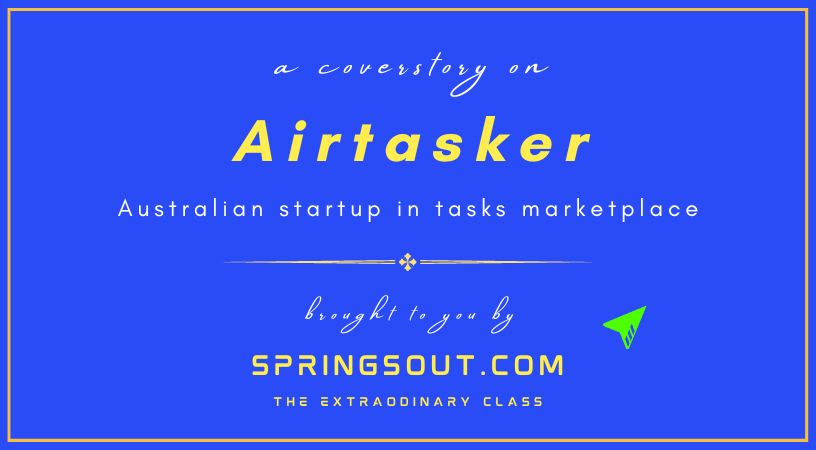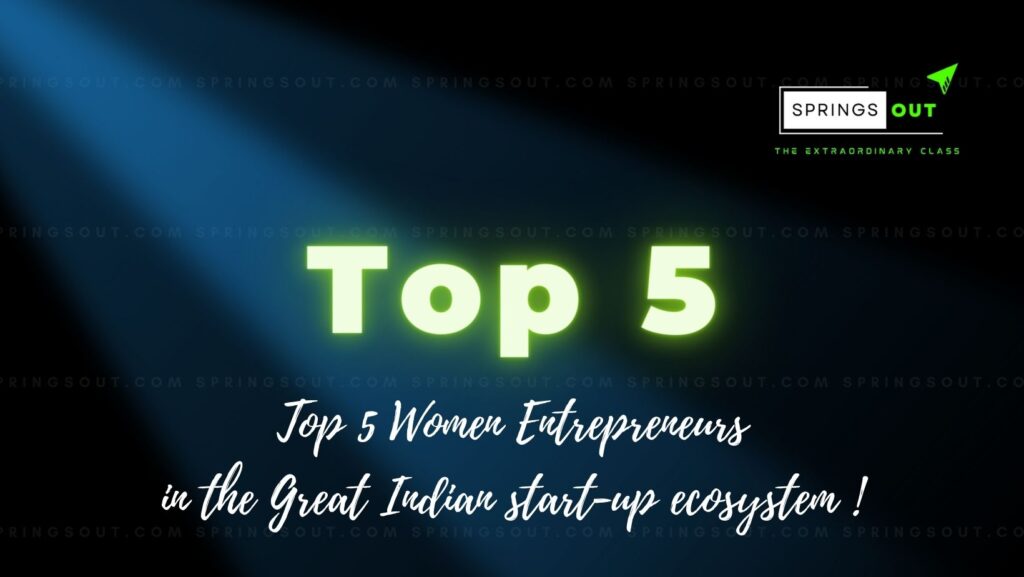
Brief on Airtasker
Airtasker is an Australian online and mobile marketplace that connects people needing small jobs and tasks done with individuals and businesses that are able to do them. The platform allows users to post tasks, receive offers from interested Taskers, review Tasker profiles, and securely pay for completed tasks. The types of tasks that can be posted on Airtasker range from cleaning and handyman services to graphic design and web development. Airtasker operates in several countries including Australia, the United Kingdom, and Ireland.
Quick Facts about Airtasker
Some quick facts about Airtasker:
- Airtasker was founded in 2012 by Tim Fung and Jonathan Lui in Sydney, Australia.
- The platform operates in Australia, the United Kingdom, and Ireland.
- As of 2021, Airtasker has over 10 million registered users and over 2 million verified reviews of Taskers.
- Airtasker has raised over AUD $88 million in funding to date, with investors including Seven West Media, Morning Crest Capital, and NRMA Insurance.
- Airtasker takes a commission from the Tasker’s fee, which ranges from 10% to 20%, depending on the task category.
- Some of the most popular categories on Airtasker include cleaning, furniture assembly, gardening, handyman services, and web development.
- Airtasker also offers a business solutions service, which allows businesses to outsource tasks and projects to a pool of verified freelancers.
Founders and Funding of Airtasker
Airtasker was founded in 2012 by Tim Fung and Jonathan Lui in Sydney, Australia. Tim Fung is the CEO of Airtasker, and Jonathan Lui was the Chief Product Officer until he left the company in 2015.
Airtasker has raised over AUD $88 million in funding to date. The funds have been used to expand the platform, invest in technology, and expand into new markets.
Fundraising Events in Airtasker
Sure, here is a breakdown of Airtasker’s fundraising events:
- Seed Round: In 2012, Airtasker raised AUD $1.5 million in a seed round led by BridgeLane Capital, with participation from other investors.
- Series A: In 2015, Airtasker raised AUD $6.5 million in a Series A round led by Morning Crest Capital, with participation from Exto Partners and other investors.
- Series B: In 2016, Airtasker raised AUD $22 million in a Series B round led by Seven West Media, with participation from Morning Crest Capital and other investors.
- Series C: In 2017, Airtasker raised AUD $33 million in a Series C round led by Skyfield Capital, with participation from NRMA Insurance, Morning Crest Capital, and other investors.
- Series D: In 2020, Airtasker raised AUD $22 million in a Series D round led by Black Sheep Capital, with participation from other investors.
The funds have been used to expand the platform, invest in technology, and expand into new markets. Airtasker has used the funds to improve the user experience, launch new features and services, and expand into new regions.
Founders Journey at Airtasker
The founders of Airtasker, Tim Fung and Jonathan Lui, both have backgrounds in entrepreneurship and technology.
Tim Fung graduated from the University of Sydney with a degree in Law and Commerce. After working as a corporate lawyer for a few years, he co-founded a company called Amistad, which provided social networking services for university students. He then went on to co-found Airtasker in 2012.
Jonathan Lui graduated from the University of New South Wales with a degree in Commerce and Information Systems. He co-founded a startup called iPartners in 2009, which provided online marketing and lead generation services. He later went on to co-found Airtasker in 2012.
The idea for Airtasker came about when Tim Fung was moving apartments and needed help with tasks such as cleaning and furniture assembly. He realized that there was a need for a platform that could connect people needing small tasks done with individuals and businesses that could do them. He shared his idea with Jonathan Lui, and they decided to start Airtasker.
Since then, Airtasker has grown to become a successful online and mobile marketplace, connecting millions of users with Taskers who can complete a wide range of tasks. Tim Fung continues to serve as CEO of Airtasker, while Jonathan Lui left the company in 2015 to pursue other projects.
Technologies Used in and by Airtasker
Airtasker is a technology-driven platform that relies on a variety of technologies to operate. Here are some of the key technologies used by Airtasker:
- Cloud Infrastructure: Airtasker uses cloud infrastructure provided by Amazon Web Services (AWS) to power its platform. AWS provides the underlying infrastructure for Airtasker’s servers, databases, and storage systems.
- Mobile Development: Airtasker has mobile apps for iOS and Android devices, which were developed using native app development technologies such as Swift and Java.
- Web Development: Airtasker’s web platform is built using a combination of front-end technologies such as HTML, CSS, and JavaScript, as well as back-end technologies such as Python and Django.
- Machine Learning: Airtasker uses machine learning algorithms to match users with the most suitable Taskers based on factors such as location, task category, and Tasker ratings.
- Payment Processing: Airtasker uses payment processing technologies provided by Stripe and PayPal to securely process payments on its platform.
- Analytics: Airtasker uses analytics tools such as Google Analytics to track user behavior and platform performance.
Overall, Airtasker relies on a combination of cloud infrastructure, mobile and web development technologies, machine learning algorithms, payment processing technologies, and analytics tools to power its platform and provide a seamless user experience.
Rise and Success of Airtasker
Airtasker has experienced significant growth and success since its launch in 2012. Here are some of the key milestones in Airtasker’s rise and success:
- Launch: Airtasker was launched in February 2012 by co-founders Tim Fung and Jonathan Lui in Sydney, Australia.
- Funding Rounds: Airtasker has raised over AUD $88 million in funding to date, with the latest round in 2020. The funds have been used to expand the platform, invest in technology, and expand into new markets.
- User Growth: Airtasker has grown to become a leading online and mobile marketplace in Australia, with millions of users and Taskers on its platform. In 2020, Airtasker reported that it had over 5 million registered users and over 1.5 million Taskers across Australia and the UK.
- Expansion: Airtasker has expanded beyond its initial focus on odd jobs and small tasks to include a wide range of services, such as home cleaning, handyman services, and office support.
- Awards: Airtasker has won several awards and accolades, including the StartupSmart Awards Best Startup in 2012, the Deloitte Technology Fast 50 in 2015 and 2016, and the Australian Growth Company Awards for Technology in 2016.
- IPO: In March 2021, Airtasker went public on the Australian Securities Exchange (ASX) with an initial public offering (IPO) that raised AUD $83.7 million.
Overall, Airtasker’s rise and success can be attributed to its innovative platform, strong leadership, strategic partnerships, and commitment to delivering a seamless user experience.
Competition and Challenges with Airtasker
As a leading online and mobile marketplace, Airtasker faces competition from a number of other companies in the same space. Here are some of Airtasker’s main competitors, as well as some of the challenges that the company has faced:
- Task Rabbit: Task Rabbit is a similar online marketplace that connects people with local freelancers who can help with tasks.
- Fiverr: Fiverr is an online marketplace that connects businesses with freelancers who offer a wide range of services, including graphic design, writing, and programming.
- Uber: While not a direct competitor, Uber has launched a service called Uber for Business that allows businesses to hire drivers to transport employees and customers.
- Legal and regulatory challenges: Like many sharing economy platforms, Airtasker has faced legal and regulatory challenges related to issues such as worker classification and liability.
- Platform safety and security: Airtasker has faced criticism over safety and security concerns related to the use of its platform, including incidents of fraud, theft, and harassment.
- International expansion: As Airtasker looks to expand into new markets, it may face challenges related to local regulations, cultural differences, and competition from established players in those markets.
Overall, Airtasker faces stiff competition in the online and mobile marketplace space, as well as a range of challenges related to legal and regulatory issues, safety and security, and international expansion. However, the company has demonstrated its ability to overcome these challenges and continue to grow and succeed.
Journey and Milestones
Airtasker has had an eventful journey since its launch in 2012, marked by several milestones and achievements. Here are some of the key milestones in Airtasker’s journey:
- 2012: Airtasker was founded in Sydney, Australia, by Tim Fung and Jonathan Lui, with the goal of creating a platform that would connect people with local workers who could help with odd jobs and small tasks.
- 2013: Airtasker launched its mobile app, making it easier for users to post tasks and for Taskers to find work on the go.
- 2014: Airtasker expanded beyond its initial focus on odd jobs and small tasks to include a wide range of services, such as home cleaning, handyman services, and office support.
- 2015: Airtasker raised AUD $6.5 million in a funding round led by Exto Partners, with participation from other investors.
- 2016: Airtasker expanded internationally, launching in the United Kingdom and opening an office in London.
- 2017: Airtasker raised another AUD $33 million in a funding round led by Skyfield Capital, bringing its total funding to over AUD $50 million.
- 2018: Airtasker partnered with insurance provider CGU to offer insurance coverage to Taskers and users in Australia.
- 2019: Airtasker announced that it had reached the milestone of 1.5 million registered users and over $1 billion worth of tasks posted on its platform.
- 2020: Airtasker raised an additional AUD $83 million in a funding round led by Morningstar, with participation from other investors.
- 2021: Airtasker went public on the Australian Securities Exchange (ASX) with an initial public offering (IPO) that raised AUD $83.7 million.
Overall, Airtasker has experienced rapid growth and success since its launch, driven by its innovative platform, strategic partnerships, and commitment to delivering a seamless user experience. Despite facing competition and challenges along the way, Airtasker has continued to expand its platform and build its brand, establishing itself as a leading player in the online and mobile marketplace space.
Key Takeaways and Learnings from Airtasker
Here are some key takeaways and learnings from Airtasker’s journey:
- Identify a gap in the market: Airtasker was founded on the premise that there was a need for a platform that could connect people with local workers who could help with odd jobs and small tasks. By identifying this gap in the market, Airtasker was able to create a platform that addressed a real need and that resonated with users.
- Be adaptable: Airtasker started out as a platform for odd jobs and small tasks, but quickly adapted to include a wider range of services as it grew. By being adaptable and responsive to user needs, Airtasker was able to grow its platform and attract a wider user base.
- Focus on the user experience: Airtasker’s success has been built on its commitment to delivering a seamless user experience, both for Taskers and users. By prioritizing user experience, Airtasker has been able to build a loyal user base and establish itself as a trusted brand in the online and mobile marketplace space.
- Build strategic partnerships: Airtasker has formed strategic partnerships with insurance providers, payment processors, and other companies to help enhance its platform and improve the user experience. By building these partnerships, Airtasker has been able to offer additional services and benefits to users, while also improving the safety and security of its platform.
- Overcome legal and regulatory challenges: Like many sharing economy platforms, Airtasker has faced legal and regulatory challenges related to worker classification, liability, and other issues. By working with regulators and stakeholders, Airtasker has been able to overcome these challenges and continue to grow its platform.
- Expand strategically: Airtasker has expanded its platform into new markets, both domestically and internationally, but has done so strategically, taking into account local regulations, cultural differences, and competition from established players in those markets. By expanding strategically, Airtasker has been able to grow its user base and establish a global presence while minimizing risks and challenges.
Overall, Airtasker’s journey offers valuable insights and learnings for entrepreneurs and startups looking to build successful online and mobile marketplace platforms. By identifying gaps in the market, focusing on user experience, building strategic partnerships, and overcoming challenges, Airtasker has been able to establish itself as a leading player in the sharing economy space.
Uniqueness of Airtasker
Airtasker’s uniqueness lies in its innovative platform that connects people who need tasks done with local workers who can help. Here are some key factors that make Airtasker unique:
- Wide range of services: Airtasker offers a wide range of services, from odd jobs and small tasks to home cleaning, handyman services, and office support. This diversity of services makes Airtasker appealing to a wide range of users and helps to differentiate it from other sharing economy platforms.
- User-generated content: Airtasker’s platform is driven by user-generated content, with users posting tasks and Taskers bidding on them. This crowdsourcing model helps to ensure that the platform is responsive to user needs and that there is always a steady supply of Taskers available to complete tasks.
- Seamless user experience: Airtasker has prioritized user experience, with a platform that is easy to use and navigate. This focus on user experience has helped to build user loyalty and establish Airtasker as a trusted brand in the sharing economy space.
- Safety and security: Airtasker takes safety and security seriously, with a range of measures in place to protect both Taskers and users. This includes background checks, insurance coverage, and a rating and review system that helps to ensure that Taskers are reliable and trustworthy.
- Strategic partnerships: Airtasker has formed strategic partnerships with insurance providers, payment processors, and other companies to help enhance its platform and improve the user experience. These partnerships have helped to differentiate Airtasker from other sharing economy platforms and offer additional benefits to users.
Overall, Airtasker’s uniqueness lies in its innovative platform, wide range of services, focus on user experience, and commitment to safety and security. By offering a differentiated and valuable service to users, Airtasker has been able to establish itself as a leading player in the sharing economy space.
Market Insights and Industry Trends: Impressions and Expressions
Here are some market insights and industry trends related to Airtasker and the broader sharing economy space:
- Growing popularity of sharing economy platforms: The sharing economy has been growing in popularity in recent years, with platforms like Airtasker, Airbnb, and Uber becoming increasingly popular. This trend is driven by consumers’ desire for convenience, flexibility, and cost savings, as well as the increasing availability of technology that makes it easier to access these platforms.
- Increasing competition in the sharing economy space: While the sharing economy presents significant opportunities, it also presents challenges, particularly in terms of competition. As more players enter the space, it can be difficult for platforms like Airtasker to differentiate themselves and attract new users.
- Regulatory challenges: The sharing economy has faced regulatory challenges in many countries, particularly in relation to worker classification, liability, and taxation. Platforms like Airtasker need to navigate these challenges and work with regulators to ensure that their platform is compliant with local laws and regulations.
- Greater focus on sustainability: There is an increasing focus on sustainability in the sharing economy space, with platforms like Airtasker looking for ways to reduce their environmental impact. This includes promoting the sharing of resources and reducing waste, as well as exploring more sustainable business models.
- Evolving user needs: User needs are constantly evolving, and platforms like Airtasker need to be responsive to these changes. This includes offering new services and features, as well as improving the user experience and addressing user concerns related to safety and security.
Overall, the sharing economy presents significant opportunities for platforms like Airtasker, but also presents challenges related to competition, regulation, sustainability, and evolving user needs. By staying abreast of these trends and addressing these challenges proactively, Airtasker can continue to grow its platform and establish itself as a leader in the sharing economy space.
SWOT Analysis for Airtasker
Here is a SWOT analysis for Airtasker:
- Innovative platform that connects users with local Taskers for a wide range of services.
- Strong brand recognition and reputation in the sharing economy space.
- User-generated content that helps to ensure a steady supply of Taskers and responsive platform.
- Focus on user experience, including easy-to-use platform and robust safety and security measures.
- Strategic partnerships with other companies to enhance platform and improve user experience.
- Heavy competition in the sharing economy space, which can make it difficult to differentiate Airtasker from other platforms.
- Dependence on the availability of Taskers, which can lead to delays or unfulfilled tasks if there aren’t enough Taskers in a particular area.
- Dependence on user-generated content, which can result in inaccurate or incomplete task postings.
- Growing demand for sharing economy platforms and services, which presents significant growth opportunities for Airtasker.
- Opportunities to expand into new markets or offer new services to existing users.
- Potential to partner with other companies or industries to broaden Airtasker’s reach and appeal.
- Opportunities to further enhance the user experience through improved technology or additional safety and security measures.
- Regulatory challenges, particularly in relation to worker classification, liability, and taxation.
- Potential for negative reviews or incidents that can damage Airtasker’s reputation.
- Risk of security breaches or other cyber threats.
- Economic downturns or shifts in consumer behavior that could impact demand for sharing economy services.
Overall, Airtasker’s strengths lie in its innovative platform, strong brand recognition, and focus on user experience and safety. However, it also faces challenges related to competition, regulation, and potential vulnerabilities. By addressing these challenges proactively and leveraging its opportunities for growth and expansion, Airtasker can continue to build its platform and strengthen its position in the sharing economy space.
PESTLE Analysis for Airtasker
Here is a PESTLE analysis for Airtasker:
- Regulatory challenges: Airtasker operates in various countries, and it must comply with different regulatory frameworks. It may face regulatory challenges in terms of liability, worker classification, and taxation.
- Government policies: Changes in government policies or regulations may affect Airtasker’s business model and profitability.
- Economic downturns: Economic downturns can impact the demand for sharing economy services, which can affect Airtasker’s revenue and profitability.
- Income levels: The income levels of potential customers may impact the demand for Airtasker’s services.
- Changing consumer behavior: Consumers are increasingly looking for convenient and flexible services, which is driving demand for sharing economy platforms like Airtasker.
- Increased emphasis on sustainability: Airtasker may be able to capitalize on the growing trend of sustainability by promoting the sharing of resources and reducing waste.
- Advancements in technology: Airtasker’s platform relies on technology, and advancements in technology can help to improve the platform and user experience.
- Cybersecurity risks: Airtasker may face cybersecurity risks, which can harm its reputation and result in financial losses.
- Liability issues: Airtasker may face liability issues related to the services provided by Taskers.
- Intellectual property issues: Airtasker may face intellectual property issues related to user-generated content.
Sustainability concerns: Airtasker may need to consider the environmental impact of its platform and take steps to reduce its carbon footprint.
Overall, Airtasker’s success may be impacted by various political, economic, sociocultural, technological, legal, and environmental factors. By staying abreast of these factors and adapting to changing circumstances, Airtasker can position itself for long-term success in the sharing economy space.
Airtasker 4 P’s of Marketing Mix
Here are the 4 P’s of marketing mix for Airtasker:
Airtasker offers a unique platform that connects customers with skilled Taskers who can complete a wide range of tasks. To continue to be successful, Airtasker must ensure that its platform is easy to use, reliable, and offers a variety of high-quality services.
Airtasker operates on a commission-based pricing model, where it takes a percentage of the payment made to Taskers. To remain competitive, Airtasker must ensure that its pricing is transparent, reasonable, and reflects the value provided by its platform.
Airtasker relies heavily on digital marketing channels such as social media, email marketing, and online advertising to promote its platform. To continue to attract new customers and Taskers, Airtasker must create engaging and relevant marketing campaigns that highlight the unique benefits of its platform.
Airtasker is an online platform that operates in various countries. To continue to expand its reach, Airtasker must ensure that its platform is accessible in different languages and currencies and is tailored to the specific needs and preferences of each market.
Overall, Airtasker’s success is dependent on its ability to offer a unique and user-friendly platform, competitive pricing, effective marketing campaigns, and seamless access to its services in different markets. By focusing on each of the 4 P’s of marketing mix, Airtasker can continue to grow its user base and maintain its position as a leader in the sharing economy space.
Porters Five Forces Framework Analysis
Here is a Porter’s Five Forces analysis for Airtasker:
- Threat of new entrants: The threat of new entrants in the sharing economy space is relatively low because there are significant barriers to entry. Airtasker has established a strong brand reputation and has already captured a significant market share. Additionally, it can be challenging for new entrants to attract enough Taskers to create a viable platform.
- Bargaining power of suppliers (Taskers): Taskers hold a relatively high level of bargaining power since they are the ones providing the services on Airtasker’s platform. If Airtasker were to change its policies or pricing in a way that negatively impacted Taskers, they could potentially leave the platform or provide lower quality services.
- Bargaining power of buyers (customers): Buyers on Airtasker have a high level of bargaining power since there are many sharing economy platforms available to them. If Airtasker were to raise its fees or reduce the quality of its services, customers could easily switch to a competitor.
- Threat of substitutes: There are many substitutes available to Airtasker, including other sharing economy platforms, traditional service providers, and DIY solutions. However, Airtasker’s platform offers unique benefits such as convenience, flexibility, and affordability, which can make it more appealing than other substitutes.
- Industry rivalry: The sharing economy space is highly competitive, and Airtasker faces significant competition from other sharing economy platforms like TaskRabbit, Thumbtack, and Upwork. However, Airtasker’s strong brand reputation and innovative platform give it a competitive advantage over its rivals.
Overall, Airtasker faces significant competition in the sharing economy space, but its strong brand reputation and unique platform features give it a competitive advantage. The bargaining power of suppliers (Taskers) and buyers (customers) is also an important consideration for Airtasker’s success. By maintaining positive relationships with Taskers and customers and continuing to innovate its platform, Airtasker can position itself for long-term success in the sharing economy space.
Focus and Summary
In summary, Airtasker is an Australian-based sharing economy platform that connects customers with skilled Taskers who can complete a wide range of tasks. Founded in 2012, Airtasker has experienced significant growth and success over the years, expanding to different countries and raising millions in funding.
Airtasker’s unique platform offers several benefits, including convenience, flexibility, and affordability, which have helped it establish a strong brand reputation in the sharing economy space. However, Airtasker faces significant competition from other sharing economy platforms, and its success is dependent on maintaining positive relationships with Taskers and customers and continuing to innovate its platform.
To remain successful, Airtasker must focus on several key areas, including product innovation, competitive pricing, effective marketing campaigns, and seamless access to its services in different markets. By focusing on these areas and leveraging its competitive advantages, Airtasker can continue to grow its user base and maintain its position as a leader in the sharing economy space.
*Disclaimer
We highly welcome all the great suggestions, complaints about any errors, inappropriate information that seek correction, and highly recommend that you may please feel free to write to us at hi@springsout.com and share your feedback with us.
All the details mentioned above have been written and composed by researching from the various resources both online and offline. All with the help of books & magazines, corporate websites, founders websites, business websites and search engines like google.com, bing.com et al. The sole purpose of sharing this information is to boost the zeal of entrepreneurship and ignite the passion of many budding entrepreneurs.
Follow us on our social presence at Facebook, Twitter, Linkedin, Instagram and Pinterest.









